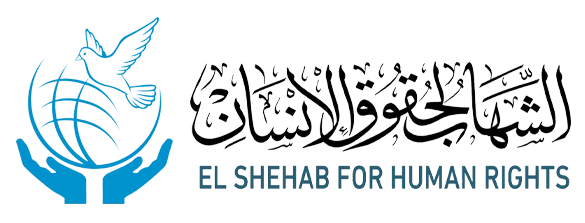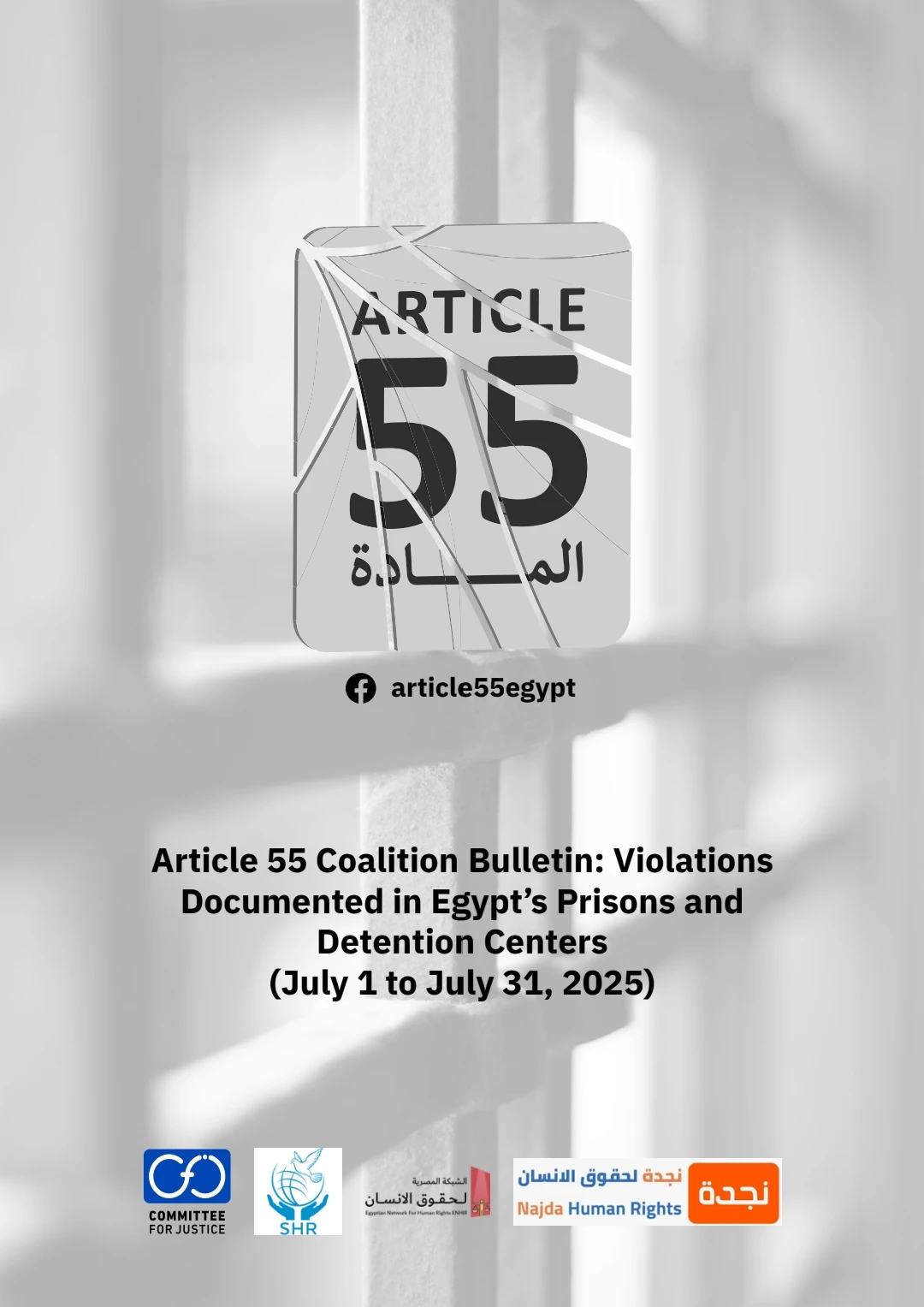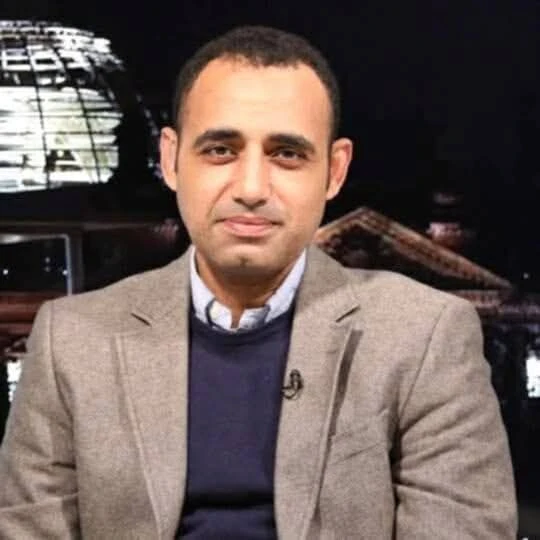Article 55 Coalition documents violations inside Egyptian detention centers during the period from July 1 to July 31, 2025
The organizations of the Article 55 Coalition issued their monthly bulletin highlighting the most prominent human rights, legal, and judicial developments in Egypt during July 2025, along with a detailed record of the violations that took place inside prisons and detention centers under the authority of Egyptian security services.
Human rights, economic, and political situation in July
In July 2025, Egypt experienced interconnected political, economic, and social developments, reflecting the overlap between domestic affairs and surrounding regional and international dynamics. With Israel’s continued bombardment of Gaza, the tightening of the blockade, and the obstruction of humanitarian aid to its residents, Egyptians followed the situation with anxiety and concern over its possible repercussions for internal stability and livelihoods.
On the legislative level, Parliament passed the new rental law, which abolished the old rent system and set transitional periods for the expiration of contracts: seven years for residential units and five years for non-residential units such as shops and offices. The law also imposed annual increases and divided rents by area. This stirred wide debate and fears of displacing thousands of families and raising rental costs, especially among vulnerable groups such as the elderly, widows, and low-income households.
The month also saw a major crisis when a massive fire broke out at the Ramses Central Exchange building on the evening of July 7. The fire lasted about 13 hours, killed four employees, and injured 27 others. It caused severe damage to telecommunications infrastructure, leading to widespread disruption of internet and phone services in Cairo and Giza, with national connectivity dropping to about 62% of normal levels. The incident exposed the fragility of Egypt’s digital infrastructure, which relies on a single central hub, and sparked calls to distribute telecommunications infrastructure geographically and technically to avoid similar disasters in the future.
Socially and economically, labor and professional protests escalated due to low wages and delayed payments. These took the form of partial strikes and work stoppages. Despite their spread, they did not develop into a broader popular movement because of continued security crackdowns, which also targeted solidarity actions with Gaza.
Overall, July 2025 reflected a mix of internal and external pressures on Egypt, where economic and social hardships combined with structural challenges in infrastructure and legislation, while security agencies remained the primary tool for containing tensions and protests.
Violations inside detention centers
The organizations of the Article 55 Coalition documented several serious violations inside prisons and detention centers in Egypt during July 2025.
Egyptian authorities continued to apply strict security measures against activists and human rights defenders, with many still unlawfully detained without release. Others faced new charges after exceeding legal pretrial detention limits. Authorities also pursued those showing solidarity with Gaza, extending measures to include the arrest of bloggers and online activists in various fields. This pointed to increasing restrictions on freedom of opinion and digital expression.
At the same time, the organizations recorded six deaths inside Egyptian detention centers.
Badr Prison also witnessed dangerous developments reflecting the deterioration of humanitarian conditions inside. In less than two weeks, 16 suicide attempts were recorded, including three on a single day (July 4). Among them:
Dr. Abdel Rahim Mohamed, a cardiology consultant, attempted to slit his throat before surveillance cameras.
Reda Abu El-Gheit tried to cut his veins with his teeth.
Economist Dr. Abdallah Shehata attempted to hang himself.
These incidents were not isolated but formed a collective cry for help from detainees living under conditions described as a “furnace for dignity and life.”
The Article 55 Coalition affirms that the violations inside prisons and detention centers in Egypt are not individual incidents but reflect a systematic policy by the authorities, especially toward political detainees.
The policy of impunity has encouraged the repetition of these practices, as no official has ever been held accountable despite documented serious violations.
The coalition expressed deep concern about the rising number of deaths and the worsening conditions of detainees, and called for:
An urgent investigation into these violations.
Accountability of those responsible.
Compliance with international standards and Egyptian prison laws to ensure humane conditions that preserve the dignity of detainees.



